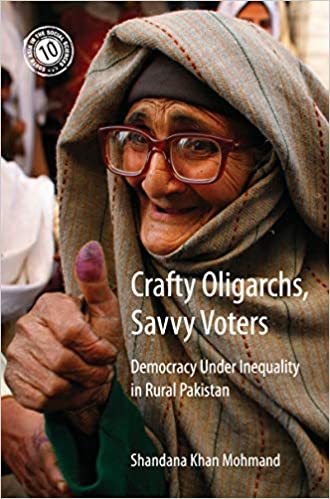

Most ebook files are in PDF format, so you can easily read them using various software such as Foxit Reader or directly on the Google Chrome browser.
Some ebook files are released by publishers in other formats such as .awz, .mobi, .epub, .fb2, etc. You may need to install specific software to read these formats on mobile/PC, such as Calibre.
Please read the tutorial at this link: https://ebookbell.com/faq
We offer FREE conversion to the popular formats you request; however, this may take some time. Therefore, right after payment, please email us, and we will try to provide the service as quickly as possible.
For some exceptional file formats or broken links (if any), please refrain from opening any disputes. Instead, email us first, and we will try to assist within a maximum of 6 hours.
EbookBell Team

4.7
66 reviewsPakistan has transitioned to democracy but landlord dominance of rural politics
has persisted across large parts of its countryside. What does this mean for the
political participation of its rural voting majority?
This book uses rich primary research to develop innovative measures of political
engagement that capture considerable diversity in the voting behaviour of rural
citizens, and show how they are exploiting political spaces that are opening up
as a result of social and economic change. While these changes have allowed
poorer rural voters to gain some strategic advantage vis-à-vis their landlords, they
have not yet contributed substantially to the creation of broad constituencies of
support for Pakistan’s political parties due to the existence of an alternate local
political institution – the village level vote bloc. Landed elites organise vote blocs
to control village politics, while voters use them to advance their political interests
strategically. This makes vote blocs inherently unstable political institutions as
both leaders and voters change their behaviour and strategies over time – reacting
to one another and to socio-economic changes – and cause shifts to occur in the
organisation of rural politics.
The book uses a mix of quantitative analysis with detailed case study work, social
network analysis and archival research, to provide an empirical analysis of rural
politics, specifically of local political competition, participation, and bargaining
practices. This analysis shows that elite persistence in the control of local political
institutions can co-exist with considerable differences in the forms of engagement
between local elites and voters within the same political context, and that the
observed variation is explained by the institutional basis of economic and social
inequality. This suggests that the further democratisation of Pakistan’s politics is
dependent on the mitigation of persistent structural inequality.